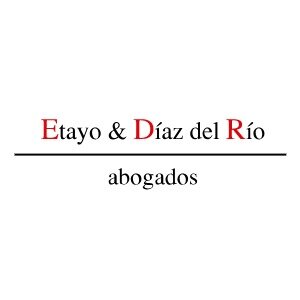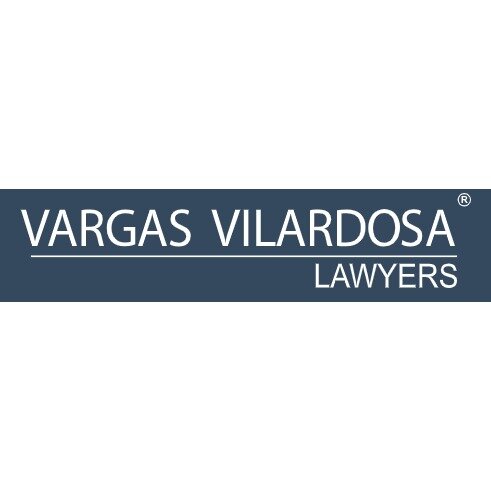Best Mining Law Lawyers in Spain
Share your needs with us, get contacted by law firms.
Free. Takes 2 min.
Or refine your search by selecting a city:
List of the best lawyers in Spain
About Mining Law in Spain
Mining Law in Spain is a specialized area of law that governs the exploration, extraction, and management of mineral resources within Spanish territory. This legal field is regulated primarily by the Ley de Minas (Mining Law) and supplemented by a range of regional and national regulations. The legal framework covers various aspects such as licensing, environmental protection, mineral rights, land use, and relationships between mining companies, landowners, and the government. Mining activities are considered of public interest in Spain, and the state plays a central role in granting and supervising mining rights.
Why You May Need a Lawyer
Individuals and companies may require legal assistance in Mining Law for several reasons. Some of the most common situations include:
- Obtaining necessary permits and licenses for exploration and extraction activities
- Navigating the complex application and approval process for mining concessions
- Negotiating contracts with landowners, investors, or local authorities
- Ensuring compliance with environmental and safety regulations
- Handling disputes related to land access, ownership, or compensation
- Responding to administrative sanctions or inspections by governmental bodies
- Addressing liability for environmental damage or accidents
- Structuring business transactions such as transfers of mining rights or mergers involving mining assets
- Understanding taxation and reporting obligations associated with mining operations
Local Laws Overview
Mining activity in Spain is primarily regulated by the national Ley de Minas, along with complementary regional and local regulations. Some key aspects relevant to Mining Law in Spain include:
- Mining Concessions: Mining rights are granted through public concessions, which give the holder exclusive rights to exploit specific resources in a defined area for a limited term, renewable under certain conditions.
- Licenses and Permits: Multiple permits are typically required, including exploration, exploitation, and environmental permits. The approval process involves both the central and autonomous (regional) governments.
- Environmental Impact Assessment (EIA): Most mining projects must undergo rigorous environmental review to mitigate negative impacts and protect biodiversity, water sources, and local communities.
- Land Use and Surface Rights: Surface land and subsoil minerals may be owned separately. Mining companies must often negotiate with landowners for surface access, unless expropriation procedures are initiated for public interest reasons.
- Safety and Labor Regulations: Strict standards apply to health, safety, and working conditions in mining operations, overseen by Labor and Industry authorities.
- Public Participation and Transparency: Communities, NGOs, and other stakeholders have the right to participate in decision-making processes regarding mining activities, especially in relation to environmental matters.
- Inspection and Enforcement: Governmental bodies regularly monitor compliance, and violations can lead to fines, suspension of activities, or revocation of concessions.
Frequently Asked Questions
What is the main law governing mining activities in Spain?
The main law regulating mining in Spain is the Ley 22/1973, de 21 de julio, de Minas, commonly referred to as the Mining Law. This is complemented by various regulations at both regional and national levels.
Who can apply for mining rights in Spain?
Both individuals and legal entities, including foreign nationals and companies, can apply for mining exploration and exploitation rights, provided they fulfill the requirements established by law.
How are mining rights granted?
Mining rights are typically granted by the competent authority through concessions following public administrative procedures. These rights are exclusive for the designated minerals and area.
Do I need the consent of the landowner to conduct mining activities?
While mining rights can be granted by the government, companies often need to negotiate with surface landowners for access. If an agreement cannot be reached, compulsory purchase or forced easement processes may be initiated in cases of public interest.
What permits are required before starting a mining project?
Usually, an exploration permit, an exploitation concession, environmental authorizations, and, in some cases, additional sector-specific permits are required before initiating mining works.
How long does it take to obtain a mining concession?
The timeframe varies depending on the type of resource, location, and complexity of the project, but it often takes several months to more than a year, owing to environmental assessments and public consultation processes.
What are the main obligations of mining operators?
Operators must comply with legal and contractual obligations, including environmental protection measures, workplace safety, paying required taxes and royalties, and restoring affected areas after mining ends.
Can mining concessions be transferred or sold?
Yes, mining concessions can be transferred, subject to authorization from the competent authorities. The new concessionaire must meet all legal and financial requirements.
What happens if a mining company breaches legal obligations?
Non-compliance can result in administrative penalties, including substantial fines, suspension or revocation of mining rights, and potential civil or criminal liability for environmental or safety violations.
How are disputes in mining matters resolved?
Disputes may be handled through administrative appeal procedures, civil court litigation, or arbitration, depending on the nature of the conflict and any contracts in place between parties.
Additional Resources
Several resources and organizations may be helpful for individuals seeking guidance or more information on Mining Law in Spain:
- Spanish Ministry for the Ecological Transition and the Demographic Challenge (Ministerio para la Transición Ecológica y el Reto Demográfico, MITECO) - oversees mining policy and environmental compliance
- IGME (Instituto Geológico y Minero de España) - offers technical and scientific support for mining activities
- Autonomous Community Mining Departments - each region has a relevant authority responsible for mining regulation
- Spanish Bar Association (Consejo General de la Abogacía Española) - can help locate experienced lawyers in Mining Law
- Professional associations such as the Spanish Mining Engineers Association
Next Steps
If you need legal assistance regarding Mining Law in Spain, consider the following steps:
- Gather all relevant documents about your mining interests or activities, such as licenses, permits, contracts, and correspondence with authorities
- Define your objectives and the specific issues or questions you need resolved
- Seek out a lawyer or law firm with expertise in Mining Law and familiarity with the relevant local and national regulations
- Request a consultation to discuss your needs, potential risks, and available legal strategies
- Consult official resources, such as the Ministry or regional mining departments, for up-to-date guidelines and requirements
Taking these steps can help you navigate the complex legal landscape of mining in Spain, protect your interests, and ensure compliance with all applicable laws and regulations.
Lawzana helps you find the best lawyers and law firms in Spain through a curated and pre-screened list of qualified legal professionals. Our platform offers rankings and detailed profiles of attorneys and law firms, allowing you to compare based on practice areas, including Mining Law, experience, and client feedback.
Each profile includes a description of the firm's areas of practice, client reviews, team members and partners, year of establishment, spoken languages, office locations, contact information, social media presence, and any published articles or resources. Most firms on our platform speak English and are experienced in both local and international legal matters.
Get a quote from top-rated law firms in Spain — quickly, securely, and without unnecessary hassle.
Disclaimer:
The information provided on this page is for general informational purposes only and does not constitute legal advice. While we strive to ensure the accuracy and relevance of the content, legal information may change over time, and interpretations of the law can vary. You should always consult with a qualified legal professional for advice specific to your situation.
We disclaim all liability for actions taken or not taken based on the content of this page. If you believe any information is incorrect or outdated, please contact us, and we will review and update it where appropriate.
Browse mining law law firms by city in Spain
Refine your search by selecting a city.

















